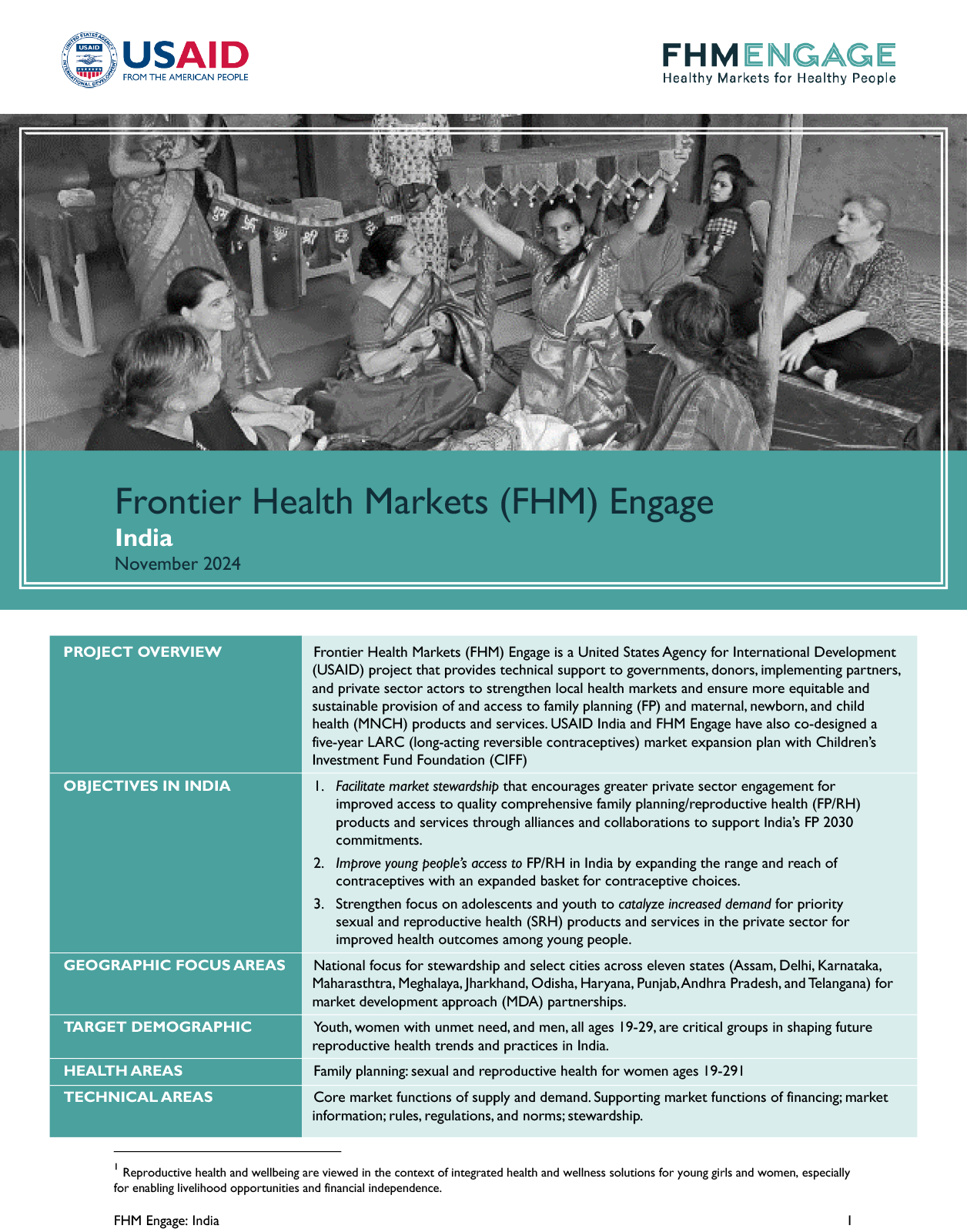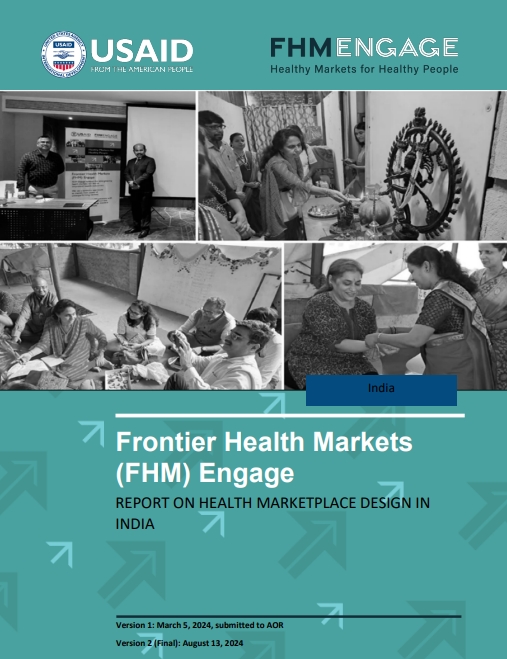
Resource Library
FHM Engage India Fact Sheet
Frontier Health Markets (FHM) Engage is a United States Agency for International Development (USAID) project that provides technical support to governments, donors, implementing partners, and private sector actors to strengthen local health markets and ensure more equitable and sustainable provision of and access to family planning (FP) and maternal, newborn, and child health (MNCH) products and services. USAID India and FHM Engage have also co-designed a five-year LARC (long-acting reversible contraceptives) market expansion plan with Children’s Investment Fund Foundation (CIFF).
Resource Type : Brief
Country : India
Year : 2024-12-17T11:35:05
Language : English
Project : FHM Engage
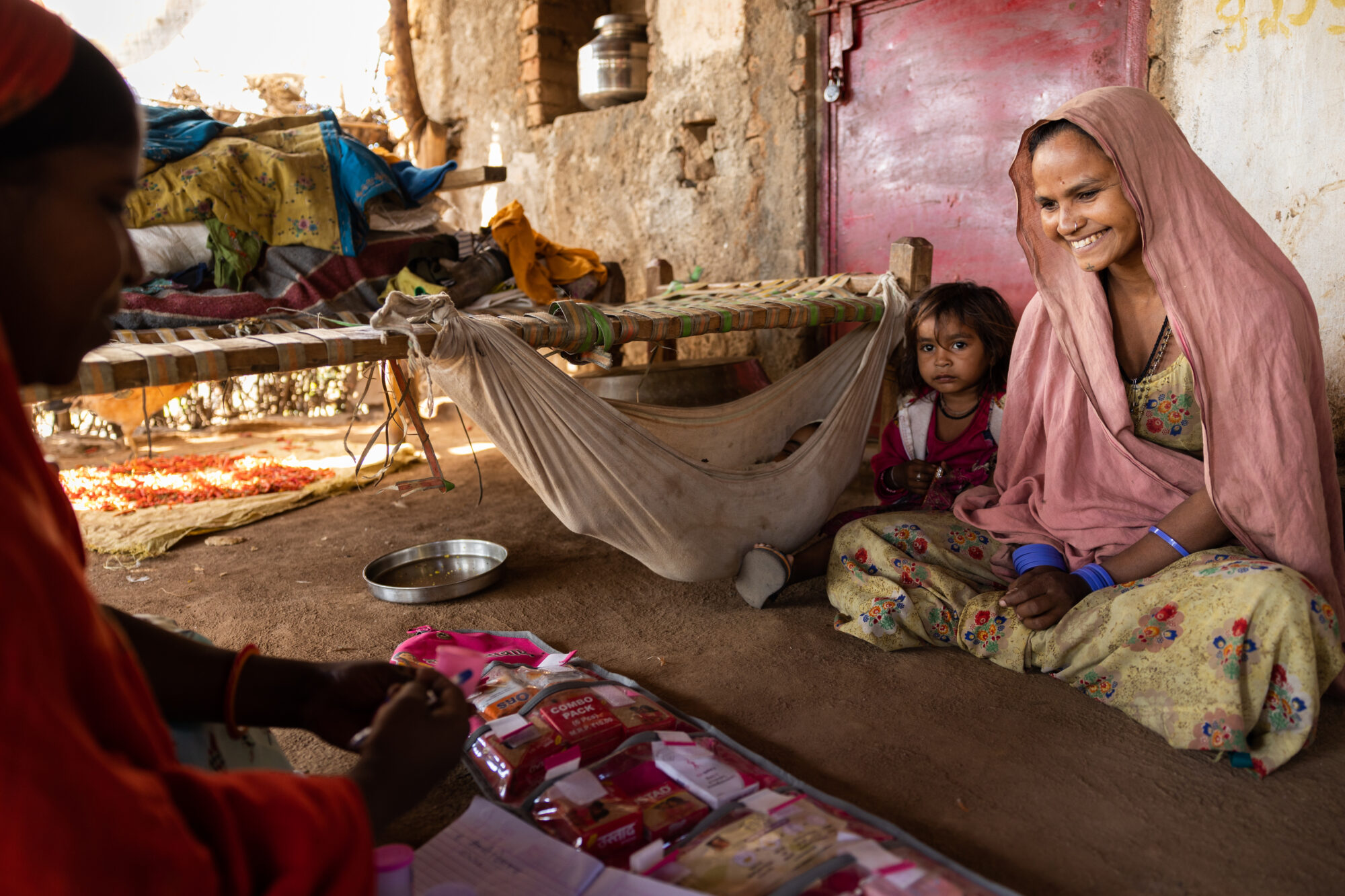
Paving the way for a bustling health marketplace
For centuries, marketplaces have been synonymous with efficient, productive, and optimal exchange of goods and services. They have served as bustling, convenient spaces where producers showcase and sell their wares, and consumers compare and choose products best suited to their needs, budgets, and preferences.
Recent technological advancements and the unique challenges that countries, economies, and societies faced in the last few years have altered the way marketplaces operate. Most marketplaces today have gone digital, providing producers and consumers with an anonymous, convenient, reliable, and cost-effective experience. But what about the health marketplace?
For the full article on strengthening digital health marketplaces in India is available here.
Recent Highlights
-
Written by : Nivi team
-
Published on : 16-Dec-24
- Highlight Type : Blog
- Country :
- Project : FHM Engage
- Language : English
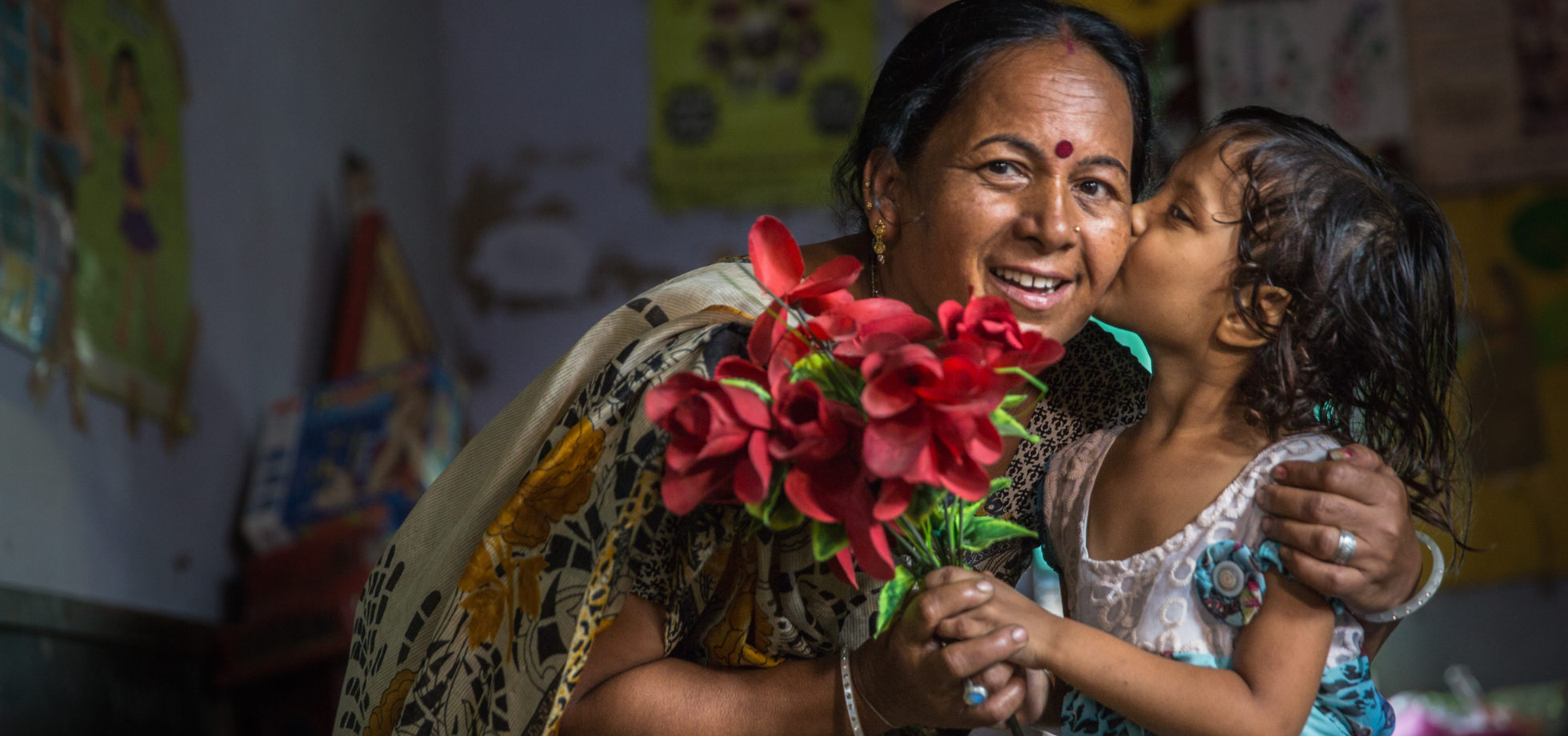
Need for Regulatory Reforms to improve contraceptive access and workforce participation
Over the years, India has made significant leap in access to family planning. Access to family planning has a multifaceted impact.
India’s family planning landscape has long been dominated by female sterilization which accounts for 67 percent of the modern contraceptive use.
Despite ongoing efforts to diversify family planning methods, as per latest round of NFHS-5, under 5% women rely on oral contraceptives, that is mostly supplied by the public distribution system through the ASHA workers.
This disparity is particularly concerning given that younger women, especially those aged 18-29, would benefit from newer OCP formulations that are better suited to their health needs.
Recent Highlights
-
Written by : Mr. N. K. Ahooja, Retired Ex-State Drug Controller Haryana & Chairman of the Ahooja Sub-Committee on OTC Drugs
-
Published on : 16-Dec-24
- Highlight Type : Blog
- Country :
- Project :
- Language : English

Improving health outcomes for women: Medical pluralism may be the way to go
India has a long and rich history of traditional medicine systems, captured succinctly by the acronym AYUSH (Ayurveda, Yoga, Unani, Siddha, along with Homeopathy). Even as debates have raged about whether or not these traditional systems should be integrated into the biomedical mainstream, there is no denying that for a large segment of the population traditional medicine remains the first port of call to meet their health needs. According to National Sample Survey Office (NSSO) data for the year 2022-23, nearly half of India’s population—46% of the rural and 53% of the urban population—utilizes AYUSH healthcare systems. As India aims for universal health coverage by 2030, leveraging this acceptability and reach of AYUSH through its enhanced integration with mainstream healthcare systems will be crucial.
Recent Highlights
-
Written by : Access Health International
-
Published on : 16-Dec-24
- Highlight Type : Blog
- Country :
- Project : FHM Engage
- Language : English
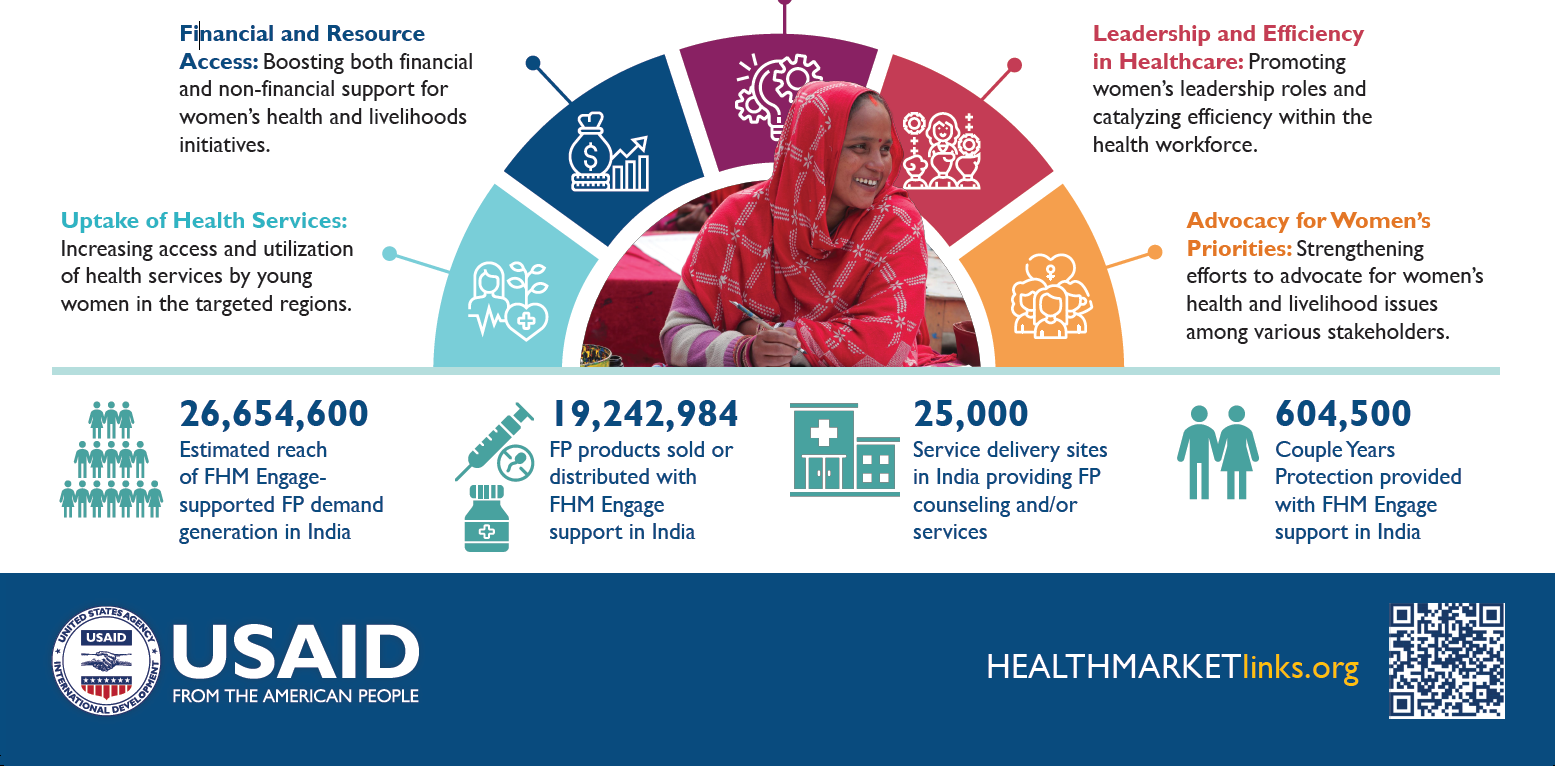
Highlighting India's Contraceptive Supply Chain Challenges in Express Healthcare Guest Blog
FHM Engage Spotlights Contraceptive Supply Chain Challenges in India in Express Healthcare Guest Blog
FHM Engage is driving critical conversations around family planning, healthcare, and reproductive services with a guest blog published in Express Healthcare. Titled "Pharmacists on the Frontline: Overlooked Challenges in the Contraceptive Supply Chain," the article, authored by Shivani Kapoor, Deputy Chief of Party of FHM Engage's activity in India, sheds light on the pivotal yet underrecognized role of pharmacists in ensuring access to contraceptives, particularly in low-resource settings. It examines the systemic barriers they face, including inconsistent supply chains, inadequate market intelligence on product demand and stock volumes, inefficient inventory systems, and lack of access to affordable working capital.
The author emphasizes that improving collaboration between pharmacists, healthcare providers, and supply chain managers is vital to bridge these gaps. Strategies like better training for pharmacists, efficient inventory systems, and increased awareness can help overcome these hurdles.
This advocacy piece is part of the FHM Engage-led Women’s Health and Leadership Agenda (WOHLA) initiative, which aims to amplify awareness and drive policy discussions around family planning and reproductive health services. By publishing in Express Healthcare, a leading platform for healthcare professionals in India, FHM Engage seeks to influence key stakeholders and spark actionable dialogue on improving access to contraceptives and addressing the systemic challenges within the supply chain. Express Healthcare reaches about 100,000 unique viewers a month.
Read the full article here.

Shivani Kapoor, Deputy Chief of Party, FHM Engage in India. Photo credit: Express Healthcare
Recent Highlights
-
Written by : FHM Engage
-
Published on : 20-Nov-24
- Highlight Type : News
- Country :
- Project : FHM Engage
- Language : English
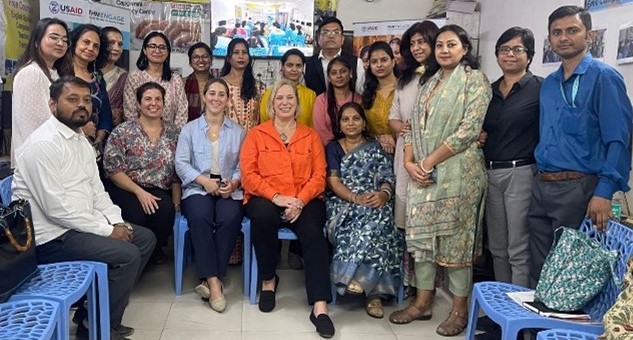
Congressional Delegation Visit to a Common Service Centre site in Delhi October 2024
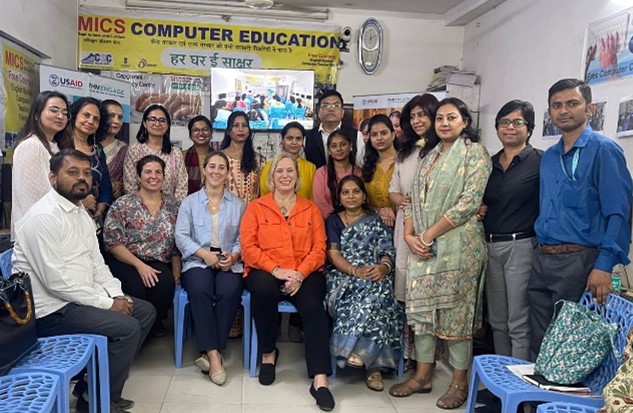 Jodi B. Herman and Molly Barlow from the U.S. Senate Foreign Relations Committee, along with Komal Khanna, Shikha Bansal, and the USAID team, visited the USAID-funded FHM Engage program site in Delhi. They met Sarita Singhania, a Village Level Entrepreneur (VLE) managing the CSC Academy in Palam. Singhania engaged over 700 participants in the past three months, guiding them through training that enhances awareness of contraceptive options and fosters interest in digital and financial literacy. Participants shared inspiring stories of transformation, noting how spacing methods positively impacted their health and quality of life.
Jodi B. Herman and Molly Barlow from the U.S. Senate Foreign Relations Committee, along with Komal Khanna, Shikha Bansal, and the USAID team, visited the USAID-funded FHM Engage program site in Delhi. They met Sarita Singhania, a Village Level Entrepreneur (VLE) managing the CSC Academy in Palam. Singhania engaged over 700 participants in the past three months, guiding them through training that enhances awareness of contraceptive options and fosters interest in digital and financial literacy. Participants shared inspiring stories of transformation, noting how spacing methods positively impacted their health and quality of life.
The team also visited a local pharmacy where a pharmacist demonstrated access to the Nivi chatbot via a QR code. The pharmacist shared a success story of a customer who used the chatbot to learn about new-generation oral contraceptive pills, ultimately leading to a consultation with her healthcare provider and a prescription, showcasing effective digital health integration.
Photo Credits: FHM Engage
Recent Highlights
-
Written by : FHM Engage
-
Published on : 25-Oct-24
- Highlight Type : Event
- Country :
- Project : FHM Engage
- Language : English

Resource Library
FHM Engage Report on Health Marketplace Design in India
Resource Type : Report
Country : India
Year : 2024-09-08T00:36:24
Language : English
Project : FHM Engage
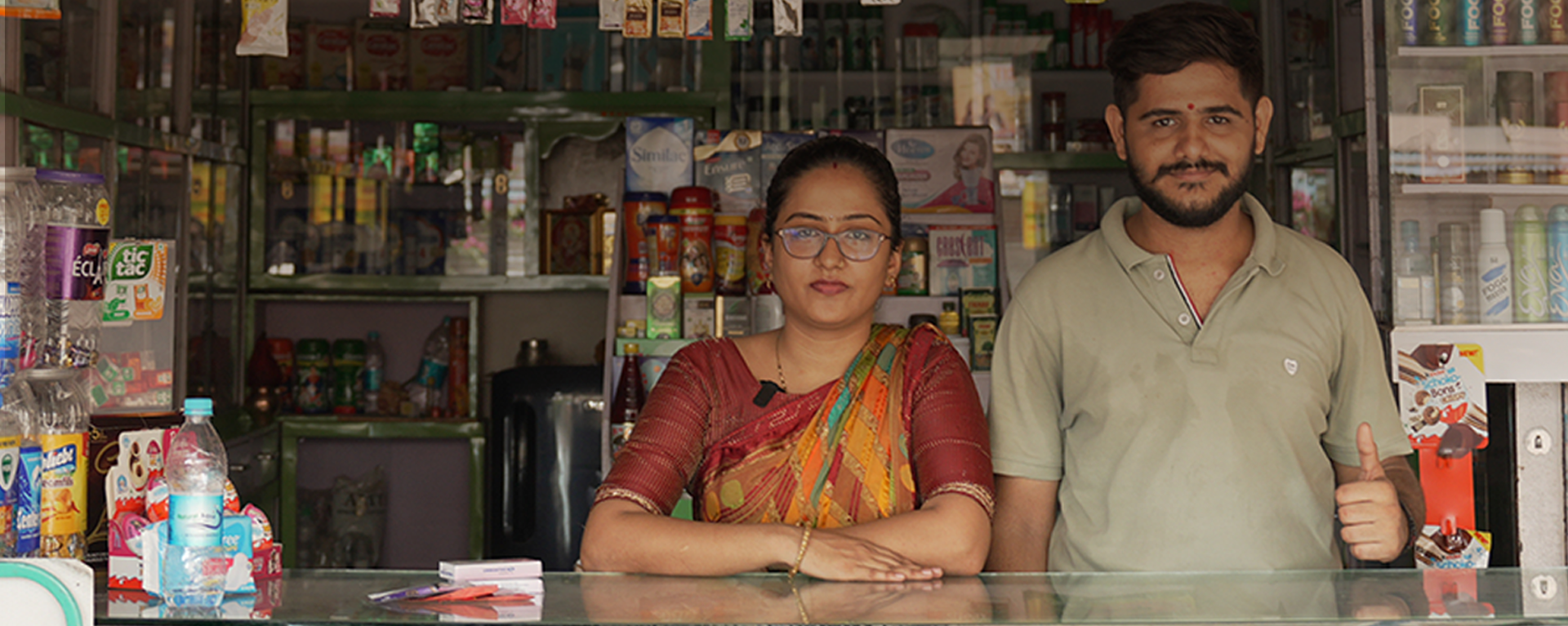
Building Strong Partnerships to Support Women’s Health and Livelihoods in India
This blog has been cross posted from the Chemonics International website.
The Women's Health and Livelihood Alliance (WOHLA) empowers women in India through innovative health and economic initiatives, driven by multi-sector partnerships for sustainable development.
Earlier this year, the Chemonics-led Frontier Health Markets (FHM) Engage program in India, in partnership with Samhita’s Collective Good Foundation (Samhita-CGF), launched the Women’s Health and Livelihood Alliance (WOHLA). WOHLA is a multi-stakeholder initiative designed to empower women in underserved communities across India by addressing the intersecting aspects of their health and economic wellbeing.
A Strategic Approach to Women’s Health and Economic Growth in India
WOHLA, co-founded by USAID’s FHM Engage program and Samhita-CGF, is a transformative initiative aimed at empowering women in underserved communities across India. The initiative addresses the interconnected aspects of women’s health and economic well-being, with a focus on young women aged 19 to 29 from lower and middle-income backgrounds in urban and peri-urban areas.
Operating as a marketplace model, WOHLA fosters capacity, networks, and partnerships to sustainably support women’s health, livelihoods, and leadership roles. It aims to improve health outcomes by providing access to quality sexual and reproductive health (SRH) services, including contraceptives, to prevent unplanned pregnancies and reduce school/college dropout rates. WOHLA’s multi-sectoral approach leverages resources and overcomes policy barriers through effective coordination between private and public sectors. Every $1 invested in women’s health is projected to yield $3 in economic growth, highlighting the initiative’s potential to drive substantial economic and social change in India.
With India’s formal female labor force participation rate at 33%, significantly lower than the global average of 49%, enhancing women’s participation in the workforce is critical. A recent Barclays report suggests that for India to achieve 8% GDP growth in the next five years, female workforce participation needs to exceed 50% of the new workforce by 2030. By improving health outcomes and enabling success in livelihood opportunities, WOHLA aims to address these challenges, ultimately contributing to broader economic growth. WOHLA’s initial efforts are concentrated in Assam, Delhi, Karnataka, Maharashtra, and Meghalaya, with plans to expand to additional priority areas. The long-term goal is to extend WOHLA’s impact nationwide, reaching young women across India with tailored interventions.
Innovative Strategies for Health and Economic Empowerment
Millions of women in India lack access to contraceptive methods, leading to unintended pregnancies, unsafe abortions, and related health risks. Although the unmet need for contraception has declined from 12.9 percent (2016-17) to 9.4 percent (2019-21), one in five young women aged 15 to 24 still need options to space or limit births. This highlights the necessity for diverse contraceptive methods that can be accessed without embarrassment, fear of side effects, or lack of comprehensive information.
WOHLA is designed to transform young women from recipients of subsidized benefits to empowered customers and community leaders. This holistic approach provides access to customized information, affordable products and services, various financing options, and government schemes and subsidies for both healthcare and livelihood inputs.
Samhita-CGF collaborates with diverse domestic partners in health and adjacent sectors to align with WOHLA’s goals. Founding partners FHM Engage and Samhita-CGF manage WOHLA, providing technical assistance and funding to co-design market development interventions. WOHLA also blends funds from USAID’s Family Planning and Reproductive Health Program with matching grants from non-USAID sources to support reproductive health and economic empowerment.
WOHLA ensures key domestic market players have access to reliable market intelligence, enabling the distribution of a broader range of contraceptive products tailored for Indian youth. Partnerships with manufacturers like Senador Labs, Organon, and Pregna diversify suppliers for hormonal contraceptives. Digital innovations from partners Nivi and Appreciate broaden access points, and other development partners are encouraged to leverage these partnerships to improve targeting in rural and urban areas, stimulating market growth.
An advisory committee is being set up to support network capitalization to mobilize large financial contributions and build high-impact coalitions and partnerships. Carefully selected implementation partners, including NGOs working in social inclusion for women, Common Service Centers (which are established by the Indian government to serve as vital access points for a wide range of public utilities, social welfare schemes, healthcare, financial, educational, and agricultural services in rural and remote areas), and corporate workplaces, help to align women’s health and livelihood initiatives. These partners facilitate access to information around contraceptive choices available ensuring voluntarism, linkages to obtaining products and services, coordinate sourcing and local infrastructure, and ensure effective and sustainable execution of WOHLA’s objectives. These strategies will collectively foster sustainable support for women’s health, livelihoods, and leadership, creating a holistic and supportive marketplace model for women in India.
The Power of Partnerships: Insights from WOHLA’s Journey
Both government and private sectors often hesitate to invest in family planning due to perceived limited or uncertain returns and concerns about public perception. Many USAID Family Planning and Reproductive Health Program countries seek strategies to align government and private sector efforts around women’s health, demonstrating how investments in family planning can strengthen systems for inclusive social and economic prosperity. The interplay between women’s economic empowerment and health demands a cohesive approach. Given the critical role of family planning and reproductive health in women’s economic engagement, ensuring access to a range of contraceptive choices is paramount.
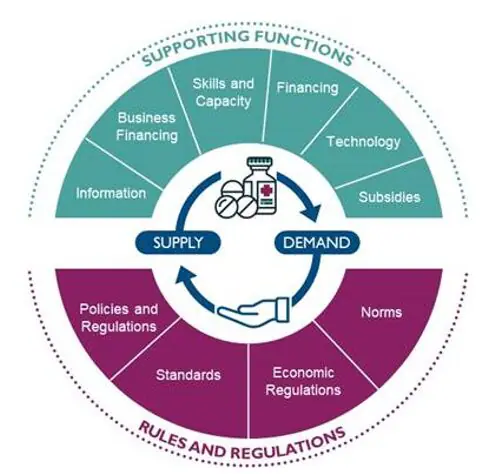
Figure: A visual depiction of a market development approach.
In designing WOHLA, we intentionally followed a (MDA) with user-centered design and engaging contraceptive market actors and marginalized young women in USAID and FHM-Engage-identified geographies. The MDA allows us to understand the market system, identify root causes of market under performance (focusing on stewardship; financing; rules, regulations, and norms; and market information), and develop context-specific and locally informed strategies and solutions to systematically change market environments and health markets. The MDA is co-implemented with local agencies and other local health market actors from both public and private sectors to support the co-design of contextually relevant and sustainable market solutions.
For the WOHLA MDA, we held root-cause analysis meetings and workshops within local communities, involving multiple stakeholders such as government representatives, NGOs, corporates, supply chain actors, and philanthropies, to understand their challenges regarding access to healthcare products and services, as well as livelihood opportunities. These discussions significantly influenced the analysis of market failures, and co-design solutions with local market actors, including setting strong selection criteria for identifying champions and program participants, to develop interventions that would achieve the healthy market vision of growth, equity, and sustainability.
Investing in compelling content to showcase program impact and leveraging targeted communication campaigns via digital media platforms has enhanced stakeholder awareness, which is crucial for securing ongoing funding and support for SRH initiatives. Inclusive stakeholder discussions fostered a deeper understanding of underserved communities’ needs, facilitating collaborative solutions and building trust among diverse stakeholders for effective program implementation.
Banner image caption: Bhagu Ashok Patel (left), 27, and Ashok Uttam Patel (right), 25, certified pharmacists and co-owners of Laxmi Medical Store in Dombivali, Maharashtra, have been married for 1.5 years. Together, they are dedicated to the future of their pharmacy and their professional growth. Bhagu takes pride in counseling and advising young girls and women on menstrual hygiene and sexual wellness products, helping them make informed purchase decisions. Credit: FHM Engage.
About the authors:
Dr. Amit Bhanot has served as project director, technical expert, and quality improvement specialist on several multimillion dollar interventions for family planning/ reproductive health, maternal newborn child health, HIV, tuberculosis, and noncommunicable diseases, including exploring blended finance models such as the Utkrisht Development Impact Bond in India. With 20 years of experience, he has worked across more than 12 countries in Asia and Africa, and 17 states in India, with six years in the for-profit private sector (including Palladium Group), 12 years in international not-for-profits (PSI and CHAI), and four years with the Indian Government Health Service.
Priya Naik is the Founder and CEO of Samhita, an impact catalyst, alliance builder, and India’s largest blended finance facility that collaborates with companies, government, financial institutions, philanthropic organizations, NGOs, and social enterprises to deliver national scale impact. Samhita and its nonprofit arm, Collective Good Foundation, have impacted 16 million individuals and intend to double the incomes of 10 million additional workers and entrepreneurs with a focus on women. Priya has a master’s degree in economics from Yale University, a master’s degree in public policy from the University of Michigan, and a master’s degree (and a Gold Medal) in Commerce from Mumbai University.
Recent Highlights
-
Written by : Dr. Amit Bhanot, Priya Naik
-
Published on : 23-Jan-25
- Highlight Type : Blog
- Country :
- Project : FHM Engage
- Language : English

FHM Engage Presents at SID-Washington 2024 Annual Conference
On Friday, April 26, 2024, FHM Engage representatives joined thousands of development practitioners from around the globe for the 2024 SID-US Annual Conference, which centered on the theme, “World in Crisis: Sparks of Hope.” In the face of tremendous challenges, including climate change, food insecurity, and growing geopolitical instability, there are windows of opportunity to advance sustainable development and strengthen resilience and security. This conference brought together speakers from around the globe to ponder and discuss opportunities for change.
FHM Engage prime implementing partner and SID-sponsor Chemonics International hosted a virtual session on “Harnessing the Power of Systems Thinking to Accelerate Local Health Markets” from 10:00 a.m. to 10:50 a.m. EST
About the session: Tackling the complex challenges of today’s healthcare landscape requires a deep understanding of the actors involved, and how they interact with one another. That’s where a systems thinking approach to health comes in! By analyzing different elements of the operating environment, from financing opportunities to laws and regulations to quality assurance standards, a systems thinking approach to market development recognizes the interrelated forces impacting sustainable access to affordable, high-quality health products and services. Join a panel of experts as they explore the innovative, practical applications of systems thinking in healthcare and the pivotal role it plays in fostering meaningful, locally led partnerships tailored to the unique needs of communities.
About the speakers: FHM Engage Project Director Dana Tilson moderated the session and speakers included FHM Engage Chief of Party/Country Director for India Dr. Amit Bhanot. Read bios and learn more about all panelists and the session on the Chemonics page here.
Session recording: View the session here.
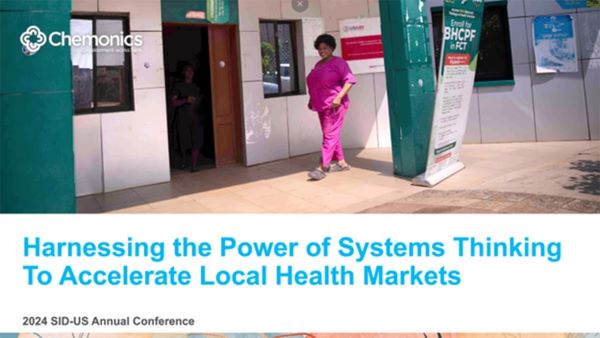
Recent Highlights
-
Written by :
-
Published on : 19-Apr-24
- Highlight Type : Event
- Country : ,
- Project : FHM Engage
- Language : English
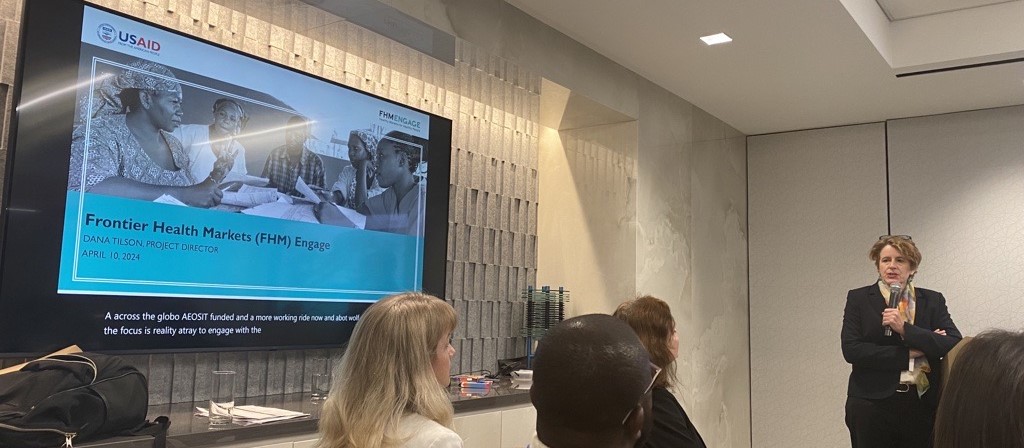
FHM Engage Presents at CORE Group Global Health Institute
Our rapidly changing and evolving world is facing challenges from disease outbreaks, climate change, and social, political, and economic impacts on women, children, and adolescents' health. Succeeding in this dynamic environment demands a multi-stakeholder approach and a deep understanding of local context and how it links to global policy. Policy and programming alignment is needed to build sustainable health systems at the national and community levels to deliver essential community health package of health services, advance equity and inclusion and achieve primary health care (PHC) for all.
On April 10, the CORE Group Global Health Institute hosted a plenary to hear from policy leaders and technical experts on shifts in policy and technical updates to meet global challenges and address the most pressing health needs. Before an audience that included CORE Group members and participants from implementers, civil society, health professional associations, youth groups, private sector, UN agencies, academia, and donor agencies, speakers emphasized the necessity of adopting an integrated approach to policy-making that underscores the interconnectedness of health challenges. They also highlighted the need for policies to be designed to foster synergy across various sectors, recognizing the interplay between disease outbreaks, climate change, conflicts, localization, and social determinants of health. Among other themes, speakers shared their unique insights on how policies can be tailored to local contexts while ensuring programmatic integrity, using scientific evidence. Speakers proposed actionable policy recommendations for advancing equity and inclusion in healthcare delivery, including strategies to dismantle systemic barriers, promote localization, and gender-responsive policies, and empower communities through participatory decision-making processes.
During a panel on “Policy and Programming in a Rapidly Changing World,” our FHM Engage Project Director Dana Tilson joined panelists from USAID, GAVI, the Global Health Council, and other relevant CORE Group members to speak about some of FHM Engage’s initiatives working with governments and local partners and involving the private sector to strengthen local health market systems and improve equal access to health products and services.
Here are notes from the FHM Engage portion of the event:
Question posed to FHM Engage Project Director Dana Tilson: USAID's Frontier Health Markets (FHM) Engage seeks to strengthen local health market systems involving the private sector and improving equal access, while working with governments and local partners. Can you speak to some of the successes with the project and how you overcame the challenges?
Response: Despite progress over the past few decades, millions of women around the world still lack access to modern contraceptive methods. This not only impacts their ability to plan their families but also affects their health and well-being. Unintended pregnancies can lead to unsafe abortions, maternal mortality, and a cycle of poverty that is difficult to break.
USAID's Frontier Health Markets Engage project seeks to strengthen local health market systems involving the private sector and improve equal access to family planning.
One of the successes of the project is its market development approach. FHM Engage recognizes that the private sector plays a crucial role in delivering healthcare services, including family planning. In many countries, more than 50 percent of family planning products and services are provided in private sector pharmacies and clinics. As such, the project has worked to strengthen the capacity of private healthcare providers and market systems and create an enabling environment for them to deliver high-quality family planning services.
Through the market development approach, we first seek to understand the private sector market for family planning or maternal and child health by looking at the core market functions of supply and demand for contraceptive products and services and identifying the root causes of why there may be supply or demand barriers. Then we look at the whole market system at the enabling environment including policy, regulations, stewardship of the market, financing constraints and market information and identify those areas that are inhibiting the private sector from delivering quality affordable products and services.
An example of the innovations coming out of this approach is the family planning marketplace that was just launched by our team in India called the Women’s Health and Livelihood Alliance. In this marketplace we have integrated health and family planning into a women’s livelihood program, where we connect investors to solution providers who are proving contraceptive information and services to young women. We intervene all the way along the value chain from contraceptive manufacturers who want to increase local domestic sales of oral contraceptive pills, to pharmacy outlets through digital aggregators, to demand generation using the latest digital interventions who make referrals to connect clinics and pharmacies. WOHLA engages with government and private sector to advocate for change in contraceptive policy and regulation to enable expansion of the private sector contraceptive market.
This approach has helped to expand access to family planning services, particularly to young women in underserved areas.
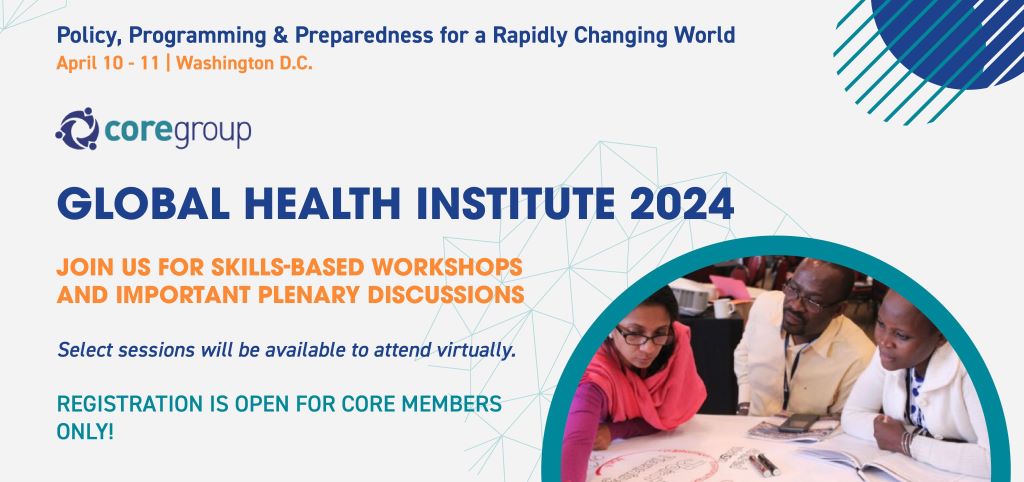
Recent Highlights
-
Written by :
-
Published on : 19-Apr-24
- Highlight Type : Event
- Country : ,
- Project : FHM Engage
- Language :
Pagination
- Page 1
- Next page


